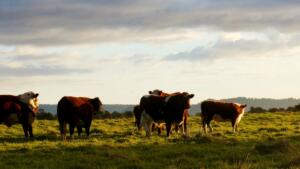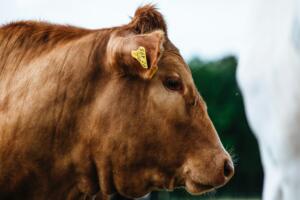There is certainly a place in the industry for good genetics advisors but as soon buying and selling stud stock becomes a job, it is almost impossible to remain independent with such a range of breeder objectives and mindsets, not to mention the realities of a commission based role.

1. If they are selling bulls at a breeders sale who doesn’t believe in breeding values – they won’t tell you that breeding values actually do work. Instead, they’ll probably tell you to put your catalogues down and look at the bull himself. Sound familiar?
Don’t get me wrong, you definitely should look at the bull himself because there is no doubt about the fact he needs to be structurally sound and visually appealing. But don’t put your catalogue down and don’t ignore the numbers.
The numbers tell you what you can’t see.
You can’t see fertility, you can’t see eating quality, you can’t see growth potential because ultimately – you can’t see their DNA. Even if you think you can see some of those things in the bull you are buying – don’t forget that you buy the sire but it is his progeny that will be your profit, or not. The numbers tell you about the bulls expected progeny performance.
2. If they are selling bulls that are poor for IMF or poor for growth, they’ll probably read out the actuals, and not tell you that those actuals (AKA raw data) won’t help you progress your genetics.
Raw data is a measure of how well the bull was fed prior to the sale day. The age of their ultra sound scan. How early they were born. How much stress they have had in their lifetime. How favourable their season was. Raw data is a measure of the environment, not the genetics.
Breeding values adjust for age, adjust for different treatments in groups (such as crop vs grass) but most importantly they don’t just incorporate that individuals performance, they incorporate the whole family like siblings, aunties, uncles.
Breeding values will enhance your own objectives much faster than selecting on raw data. The breeding value accuracy, will give you a good indication of the raw data behind that breeding value and confidence you can have in that breeding value.
3. If they’re getting commission from the big sales they won’t tell you that the smaller sale down the road is probably better aligned to your own breeding objectives, so you will pick up a better bull for less.
Just because the bulls are expensive, doesn’t mean they will be profitable in your system. Be sure on your own breeding objective. Do your research. Don’t be a marketers dream.
4. When selling a line of weaners that look the part, they won’t tell you that the pen next door who don’t look as good , actually have better genetics. Maybe they just haven’t been given the environment (management) to express their potential and will put more in the pocket in a more favorable environment.
I would love to see more information at weaner sales but I guess if it is not asked for, then there is no need for it. If you are buying weaners, be sure to ask about their breeding. Find ways to measure the performance you get from that line of stock, and compare it with others you have bought in the past. I have no doubt that you will soon find patterns of some genetics working for you much better or worse than others. The link is the studs the sires came from.

Stock agents certainly have a place in this industry but by maintaining your own breeding objectives, being clear on your process for selection and knowing what questions you should be asking – will help you and your stock agent work together effectively.

